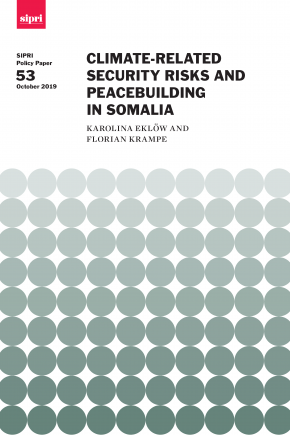Climate-related Security Risks and Peacebuilding in Somalia
Climate-related security risks are transforming the security landscape in which multilateral peacebuilding efforts take place. This policy paper offers a glimpse into the future of peacebuilding in the time of climate change by providing an in-depth assessment of the United Nations Assistance Mission in Somalia (UNSOM).
Climate-related change in Somalia has reduced livelihood options and caused migration. It has also left significant parts of the population in a vulnerable condition. These climate-related security risks contribute to grievances and increase inequality and fragility, which in turn pose challenges to the implementation of UNSOM’s mandate. The impacts of climate change have hindered UNSOM in its work to provide peace and security in Somalia and in its efforts to establish functioning governance and judicial systems.
UNSOM has responded to the growing impact of climate-related change. It has learned lessons from previous failed responses—notably the 2011 drought—and has created innovative initiatives that have been effective. While there is still room for improvement, UNSOM’s new initiatives may help to deliver a set of responses that meet the short-term need for a rapid humanitarian response and the long-term objective of achieving a sustainable and resilient society.
The challenges faced by UNSOM and its responses to them have wider implications. They suggest that there is a need for synergetic policy responses that can turn the responses to climate-related security risks into opportunities for UN efforts to sustain peace.
1. Introduction
2. Conflicts and peacebuilding efforts in Somalia
3. Climate and environmental change in Somalia
4. Climate impacts on the United Nations Assistance Mission in Somalia
5. Institutional responses to climate-related security risk
6. Implications and ways forward


